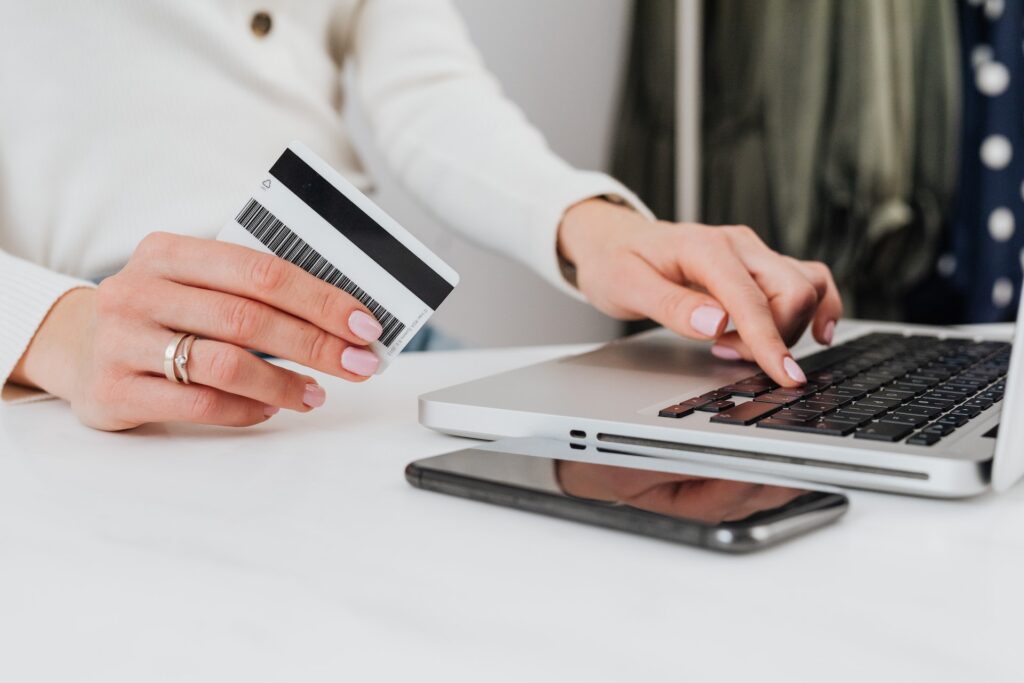Always check the URL
Make sure that the URL starts with “https”. This means that the data on the website is encrypted or converted into a different code. This prevents unauthorized access, copying, use, etc. Encryption makes it hard for cyber attackers to get your data. Websites that do not have “s” after “http” in the URL are unsecured websites, where you should not enter your financial information to.
Check if the website is legit
Always investigate the legitimacy of the website or app that you will be using for online transactions. Check the company’s social media presence. Read the customer reviews.
There are free websites that let you check if the website is safe or not by simply typing the company that you want to investigate.

Avoid using public Wi-Fi
Do not pay bills or access your bank account using public Wi-Fi as much as possible. You don’t know how those public Wi-Fi has been set up and who else is sharing the network. It may say it is a restaurant Wi-Fi, but it could be just a random guy with a laptop who is trying to steal your sensitive data such as your email address and password.
Only do online transactions over a secured internet connection. If you cannot avoid using public Wi-Fi, it is highly recommended to use Virtual Private Network (VPN) to protect your identity and hide your private information.
Never save your password to the browser or app
There is no question about the convenience of logging into different platforms when we save our passwords to it. It’s fast and convenient. However, saving passwords to the browser or app can be one of the reasons to easily fall victim to cybercriminals.
Never let browsers or apps save your password because if someone gets physical access to your computer, they can easily view your passwords. The browser or app themselves can also expose your password to data breach.
Instead of saving your passwords to the browser or app, use a password manager like Bitwarden. Password managers store your information in a strongly encrypted form.
Use Multi-Factor Authentication (MFA)
Multi-Factor Authentication is an additional layer of security wherein it proves to the website or app that you are who you say you are. It confirms your identity by using either fingerprint, face, code, or a push notification to your phone.
Fortunately, many banks or online transaction service providers offer MFA as an additional layer of security for themselves and their customers. If Multi-Factor Authentication is offered, do not think twice to use it!

Create unique and strong passwords
Using the same password to all of your accounts could be tempting because it avoids the stress of remembering multiple passwords. However, reusing the same password to all of your accounts indicates poor cyber hygiene.
Reusing passwords permits cybercriminals to get into one account and gain access to other accounts belonging to the same user. If one account gets hacked, you should assume the others will be as well. And the more a password is reused, the more likely it is that the credentials would be compromised.
Keep your passwords longer with a mix of upper and lowercase, including numbers and symbols. Most importantly, do not relate them to your personal information.
Having unique and strong passwords may sound a lot of work, but it is worth the effort to keep all your data secured.
Regularly change your passwords
By regularly changing your passwords, you may ensure that your data is safe even if someone obtains an old or stored password.
If you experienced any anomalies or issues with your online transactions, contact your account provider. If needed, seek help from IT experts.
New Zealand Computing Solutions take a stratified approach to cyber security and provide Proactive cyber defense services to prevent unauthorized Internet traffic.





